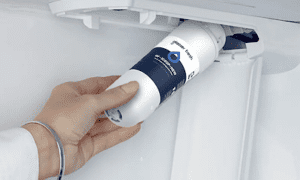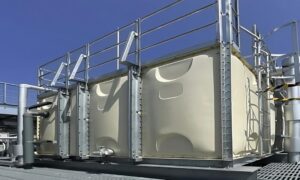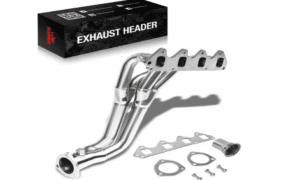A reliable and efficient water heater is essential for the comfort and convenience of every household. However, like any appliance, water heaters have a limited lifespan and will eventually need to be replaced. In this article, we will discuss some of the signs that indicate it’s time to upgrade your water heater, as well as the different types of water heaters available and how a qualified plumbing technician can diagnose the problem.

Signs that Your Water Heater Needs an Upgrade
There are several signs that indicate your water heater is on its last legs and needs to be replaced. The first and most obvious sign is age. Water heaters typically last between 8 and 12 years, depending on the model and maintenance. If your water heater is approaching or exceeding this age range, it’s probably time to start considering a replacement.
Another sign that your water heater needs an upgrade is a lack of hot water or inconsistent temperatures. If you find that you’re running out of hot water frequently, or the water temperature fluctuates unpredictably, it may be time to replace your water heater. This issue can be caused by a variety of factors, including sediment buildup in the tank, a malfunctioning thermostat, or a failing heating element.
Leaks are another clear indication that your water heater needs to be replaced. A leaking water heater is not only a nuisance, but it can also cause damage to your home’s structure and furnishings. If you notice any water pooling around your water heater or dampness on the floor or walls nearby, it’s essential to address the issue immediately before it gets worse.
Types of Water Heaters
There are several types of water heaters available on the market, each with its own advantages and disadvantages. The most common types of water heaters include:
- Conventional Tank Water Heaters: These are the most common type of water heater, with a storage tank that holds a set amount of hot water. They are relatively inexpensive but can be inefficient, as the tank needs to constantly heat and reheat the water to maintain the set temperature.
- Tankless Water Heaters: Tankless water heaters heat water instantly, meaning they don’t store hot water in a tank. They are generally more efficient than conventional tank water heaters but can be more expensive upfront.
- Heat Pump Water Heaters: These water heaters use electricity to move heat from the air or ground to heat water. They are incredibly energy-efficient but may not be suitable for cold climates.
- Solar Water Heaters: These water heaters use energy from the sun to heat water. They are eco-friendly and can be very cost effective in areas with ample sunlight.
Factors to Consider When Selecting a New Water Heater
When selecting a new water heater, there are several factors to consider to ensure you choose the right model for your home and budget. Some of the key factors to keep in mind include:
- Size: The size of your new water heater should be based on your household’s needs. Consider the size of your household and their hot water usage habits when selecting a size.
- Efficiency: Water heaters are rated based on their efficiency, which is measured by their Energy Factor (EF). Look for a water heater with a high EF to save on energy costs.
- Fuel Source: The fuel source for your water heater can impact its efficiency and cost. Consider whether natural gas, electricity, or another fuel source is the most cost-effective and practical for your home.
- Cost: The cost of a new water heater is also an essential factor to consider. While tankless and heat pump water heaters may be more expensive upfront, they can save you money over time.
Contact a Plumber for Help
A reliable and efficient water heater is essential for any household. If you’re experiencing issues with your current water heater, such as age, leaks, or inconsistent temperatures, it’s probably time to start considering an upgrade. There are several types of water heaters available on the market, each with its own advantages and disadvantages, so it’s important to carefully consider your options before making a purchase.
Factors to consider when selecting a new water heater include size, efficiency, fuel source, and cost. By taking the time to research and select the right water heater for your household’s needs, you can ensure that you have reliable and cost-effective hot water for years to come. Don’t wait until your old water heater fails completely; upgrade now to avoid the inconvenience and expense of a sudden breakdown.


































